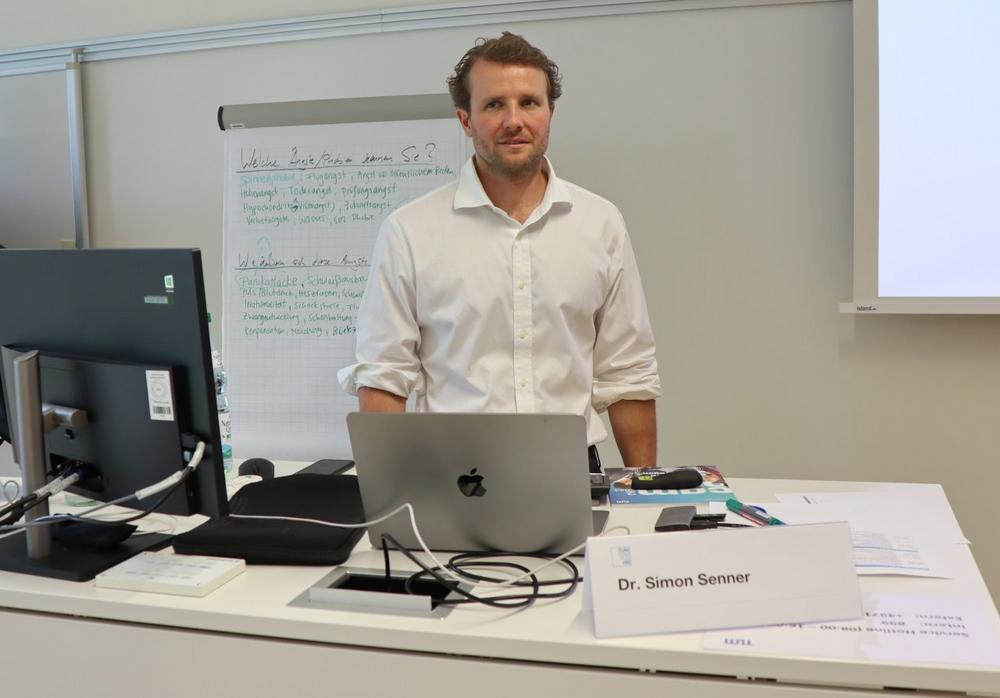Rising number of sick days as an alarm signal

Breaking News:
Kathmandu Nepal
Dienstag, Apr. 22, 2025

“As a society, we often tend to want simple answers, but the problem is the overall complexity of sick leave,” says Dr Simon Senner, Chief Physician for Psychiatry and Psychotherapy. In the workshop “Mental Health in the Workplace” at the TUM Campus Heilbronn, the expert provides answers to questions that arise regarding the proper way to deal with employees in uncertain times.
The number of sick days due to mental illness rose again last year – despite having already reached a high level in the previous year. Dr Senner warns: “It is and remains – unfortunately – an issue for the future.” This development highlights the growing importance of mental health in the workplace. In the seminar at the TUM Campus Heilbronn, Dr Senner explains how mental illnesses develop, what effects they have and how they can be actively counteracted.
Difficulties in recognizing
A central problem is often recognizing mental illnesses. “A broken arm is easy to see, but with mental problems it is often just a vague feeling,” says Senner. Managers in particular often feel insecure when dealing with affected employees. Out of ignorance, some people remain inactive – “the worst possible decision,” emphasizes Senner.
The urgency of the issue is underscored by alarming statistics: more than one in three people develop a mental illness in the course of their lives, but only around 25 percent seek professional help. In the last ten years, absenteeism due to mental illnesses such as anxiety disorders, depression and burnout has increased by 90 percent.
Psychosomatic complaints also play a major role. “According to studies, back pain has a physical cause in only about 15-30 per cent of sufferers,” explains Senner. “So for most patients, their back is not the source of the problem – and yet they stand in front of you and point to the exact spot where it hurts.” This illustrates how closely the body and mind are connected, which must also be taken into account in the treatment.
Cost factor and need for action
Mental illness not only puts a strain on those affected, but also causes considerable costs for companies and society. While progress has already been made in the area of physical occupational safety, Dr Senner sees a need for action in the area of mental health protection: “Many companies invest considerable resources to achieve small margin increases, for example in purchasing, and in doing so they have often already achieved the maximum possible. But when it comes to preventing mental stress, there is enormous, often untapped potential.”
Despite the challenges, there are positive developments: “Mental health in the workplace has developed from ‘nice to have’ to a central corporate topic,” emphasizes Senner. The modern working world, with its increasing digitalization, presents both employees and managers with new challenges. “It’s about making this elusive topic more accessible. Even many experienced managers do not know how to deal with it. So there is still a great need here,” Senner continues. Preventive measures such as the development of strategies and the exchange of best practices can be crucial here.
Tools for the workplace
To provide targeted support for managers, TUM Campus Heilbronn offers special training courses. “At TUM Campus Heilbronn, they learn the right techniques for recognizing mental illnesses and helping affected employees,” explains Senner. In the workshop “Mental Health in the Workplace”, participants receive specific recommendations for action and learn how to respond to mental health issues empathetically and effectively. “Only through dialogue and discussion can we grow,” emphasizes Senner, highlighting TUM’s leading role in training the leaders of tomorrow.
The next opportunity to fill up the toolbox will be on 12 and 13 May 2025. All the information can be found here: Mental Health in the Workplace
Die TUM Campus Heilbronn gGmbH
Bildungscampus 2
74076 Heilbronn
Telefon: +49 (0) 7131 264180
Telefax: +49 (7131) 645636-27
https://www.chn.tum.de/de
![]()